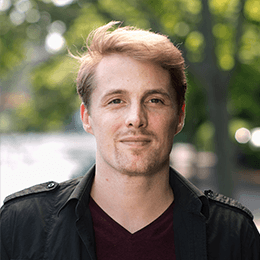Members of the Scanning the Horizon community recently met online to continue our exploration of ‘tools for inclusive futures’, engaging methods to democratise futures conversations in organisations, using digital tools which do not require previous experience from either facilitators or participants. These tools have been highlighted in our recent Sector Guide on Strategic Decision-Making in a Whirly World.
—
Futures Frequency
This time, we wanted to find out more about Futures Frequency, from the Finnish innovation and futures fund Sitra. The idea behind Futures Frequency is that it inspires thinking and action towards positive, preferred futures and can be ‘used and applied by anyone’. You can check out an intro video here.
We decided to use it to explore futures of human diversity, and felt that a group of 9-12 is a good size to allow the discussion parts to take place in threes. No advance preparation was requested from participants, just encouragement to join with an open mind, and be ready to ‘enjoy the ride’, go with the process and put their heads in a different, more creative and playful space.
Setting the stage
We started with some relaxed individual reflection about the big ‘what if’ question – in relation to futures of human diversity in 2050 – which occurred to us. Then we introduced ourselves and our big question in plenary and it was already really interesting to see the different angles which people had already come up with – from gender fluidity, to intergenerational working with people living longer, to racism being history, to humans being seen as just another part of nature. Just this initial sharing already encourages you to open up and expand your own thinking more.
First stage, challenge your assumptions about the future

Then we had to activate our imagination muscles more by moving into the first main stage of the Futures Frequency method, challenging assumptions. We were given an audio drama snippet to listen to individually and then as a small group, we discussed what assumptions we heard in the piece and how it connected to our own assumptions or what felt familiar. This was a really interesting process to go through, surfacing both small assumptions or questions but also bigger ones about when in the future the conversation was set or whether we were just defaulting to assumptions about things in this future were still working in a similar way to the present. From a facilitation angle, you could either use one of the many supporting resources which Sitra provides for this, or you could create your own snippet – audio or written – linked to the theme you’re exploring.
This process does highlight biases you weren’t aware of in your own thinking and how your brain tries to ‘fill in the gaps’ around incomplete information you have on a situation. It also helps you better understand and appreciate how those you are working with are also thinking. This would be particularly important in a very diverse group, or especially if exploring potentially sensitive topics together. This stage increases your awareness of why you think certain things, before you then move onto imagining preferred futures.
Second stage, imagine your preferred futures

In this stage, you again start with individual reflection to imagine what the theme – for us, human diversity – might look like, without boundaries, with new possibilities, and envision a mental snapshot of the future you personally prefer for this, trying to engage different senses to bring this image to life. Then moving into Miro or another digital whiteboarding space, each person in the group writes up their personal vision in one sentence on a post-it and shares it with the others in the group. Then you all work together to combine your (three) different visions into a new statement which integrates the main ‘spirit’ of each. We didn’t really have enough time for this as we were primarily exploring the method – rather than the topic – fully, but in a full session this stage clearly needs a good amount of time to complete. Again, all this has templates from Sitra.
Take action towards your preferred futures

The final stage involves thinking through actions which you can take towards bringing this vision about. First, we were guided through an individual brainstorm to come with ideas that would lead us to our vision. Time was the creative constrain here. In our small groups we were then tasked with coming up with a news headline from the future which captured what would have happened in the intervening period. We imagined we were living in 2030 and working as reporters for ‘Future News’, sharing our headline and a short explanation of the actions that had taken place and answering any questions from the other groups. And we could add visual images to represent the story as well.
Final reflections on the method
It’s recommended to add further methods to this final phase if you want to build out the process into more of a detailed action planning process. For instance, you could use backcasting or future literacy labs. But from a first experience, it really is a very useful way of getting the participants into a different space to share ideas and inspire others, appreciate the diversity of perspectives in the group and be encouraged to use your imaginations, within a simple but effective framework. It really does feel like a universal method which anyone can just pick up and use!






